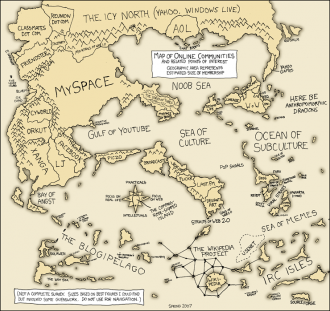Sociologists love all things “social,” and we use the word all the time in Contexts. We’ve used it in titles—“the good, the bad, and the social” (Fall 2010), “all politics is social” (on our cover Fall 2008), and, of course, “understanding people in their social worlds” (Contexts’ tagline). Another place the term pops up regularly these days is in media, news, and communication technologies—all of which we now call, almost without thought, “social media.”

A recent interview with Financial Times (FT.com), Facebook founder Mark Zuckerberg illustrates. FT reports that, “In sweeping terms and with no sense of irony,” Zuckerberg will tell anyone who’ll listen:
Our goal is to make everything social.
The Internet wunderkind goes on: “If you look five years out, every industry is going to be rethought in a social way. You can remake whole industries. That’s the big thing.”
The reporter summarized their interview, writing, “Zuckerberg uses the word ‘social’ a lot, and it’s not always obvious what he means. He is not simply talking about telling your friends what you had for breakfast with a status update. To Zuckerberg, a more social world is one where nearly everything—from the web to the TV to the restaurants you choose to eat at—is informed by your stated preferences and your friends’ preferences, and equipped with technology that lets you communicate and share content with people you know. What Zuckerberg is talking about is a new way of organising and navigating information.”
From an academic standpoint, it’s easy to be critical—”social” seems to be reduced to individual choices or friendship circles, and ideas about networking and communication are so easily put into service for big business. And then there are all the complexities of what it means to socialize on an individual basis through technological means that can, themselves, be isolating.
That said, for sociologists who often complain about the lack of an informed, sociological perspective in mainstream media and public discourse, this pervasive attention to the social should be seen as an opportunity. Not just in terms of how we use social media (though obviously we are trying to do that here at TSP), but in terms of expanding conceptions of “the social” and perhaps even bringing a more socially-oriented—dare we say, sociologically-oriented?—perspective into mainstream media and public discourse. Probably won’t hurt in the classroom, either.

Comments